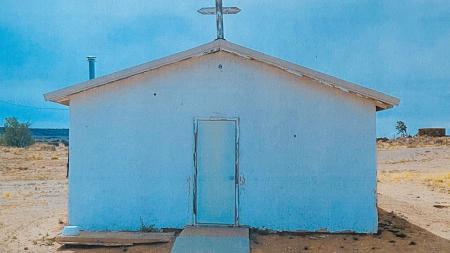Home Missions, World Missions Await Synod 2015's Decision on Joining the Agencies

Moses Chung (left) and Gary Bekker
Jim Triezenberg, CRWM
Christian Reformed World Missions and Christian Reformed Home Missions leaders say they believe the plan going to Synod 2015 to join their ministries into one agency makes sense as the CRC moves into the 21st Century.
"We are tuning into what God is doing around the world and at home, and to how we should shift to better align ourselves with that," said Moses Chung, director of Home Missions.
"Our fundamental mission is the same. We serve the same gospel," adds Gary Bekker, director of World Missions. "This is a moment when we together can reimagine, rethink, and remake mission efforts in the CRC."
Synod 2015, which meets June 12-18 on the campus of Dordt College in Sioux Center, Iowa, has on its agenda a report from the two agencies detailing the reasons for the request to join their work, at home and around the world.
The request was several years in the making, but interest in bringing the matter before synod sped up in recent months. The CRC's Board of Trustees reviewed the report and has asked for synod’s approval.
World Missions and Home Missions recently held their leadership team meetings in the Grand Rapids, Mich. office of the CRC. As part of those meetings, staff from both agencies had the chance to learn more about the the proposal.
At the meeting, Bekker said they are bringing a new vision to synod—that is, the vision of joining two agencies to "build on a key strength common to both: their supportive engagement with the church in communities in North America and around the world."
"As one mission agency, joined in mission, vision, strategy, and structure, we will have a seamless integration of local and global mission," said Bekker.
"One agency will eliminate the logistical barriers that exist with two agencies. One agency will serve a world and a God who is not bound by geography."
Chung said this proposal is, in fact, a response to finding the best ways to provide ministry in today’s changing, globalized world.
In the past, when travel was more difficult, it made geographic sense to split mission work into overseas ministry and missions closer to home in North America, said Chung.
But today much has changed. Technology has shrunk the world in many ways. And people from all over the globe — in increasing numbers — are living, working and worshiping in communities across North America.
At the same time, the need for missionaries overseas remains strong.
Bekker said the agencies both have a long history and rich experience in “church planting, discipleship, developing Christian leaders, and encouraging and assisting CRC congregations and classes in their work of evangelism, discipleship, and missions.”
By combining their decades of ministry experience and administration, he said, a new agency would help the denomination in its mission work and serve individual congregations "that are addressing the challenges of changed everyday realities on the ground."
Already, to address these new realities, Home Missions and World Missions have joined resources and are working in some communities that are seeing an influx of immigrants, Chung said during the meeting.
Chung gave two examples of missional ministries with which Home Missions and World Missions are involved: Mission Montreal and Mission Houston.
These are cutting-edge ministries, said Chung, that reflect ways in which working together helps to spread the gospel in communities that "have seen the world appear on their doorsteps."
Mission Montreal is up and running, while Mission Houston is getting under way.
"Montreal has strong local roots, but it is also home to immigrants from around the world," said Joel Huyser, CRWM's director for Transformational Networks.
Home Missions and World Missions began ministry in Montreal — a city in Quebec that some surveys say has the highest number of unreached people for Christ than any other city in the world — without entirely realizing what they would find, said Huyser, who spoke to staff at the meeting.
"What we found there was even more encouraging — partners already on the ground, committed to strengthening the church and fostering unity."
Joining with Diaconal Ministries Canada, Classis Eastern Canada, a local CRC congregation, and the longtime development and ministry organization Christian Direction, Mission Montreal has been working in many ways: doing mentorship training, helping people start small businesses, developing community gardens, and engaging in outreach with college and university students.
"One of the biggest areas of focus for Missional Montreal is outreach to the city's large Muslim immigrant community," said Huyser.
In Houston, Texas, Home Missions and World Missions are in the early stages of having an established Transformational Network.
The work is being intensely focused on bringing transformation to the lives of people living in Houston’s Third Ward, said John Eigege, who works with his wife, Chichi, in the area.
He said that Home Missions helped him to plant a church and he then began looking around and "knew I needed a missional movement of Christians … I knew the idea of a Transformational Network could radically transform the neighborhood."
He said Transformational Networks are "diverse communities of service and learning that train people in the integral biblical worldview. They train and network people to make an impact on their communities with the whole gospel."
Later in the meeting, Bekker and Chung spoke about the future as the proposal goes forward.
"We need to talk a lot together and learn from one another about the adaptive changes we need to go through as communities and also engage the churches," said Chung.


